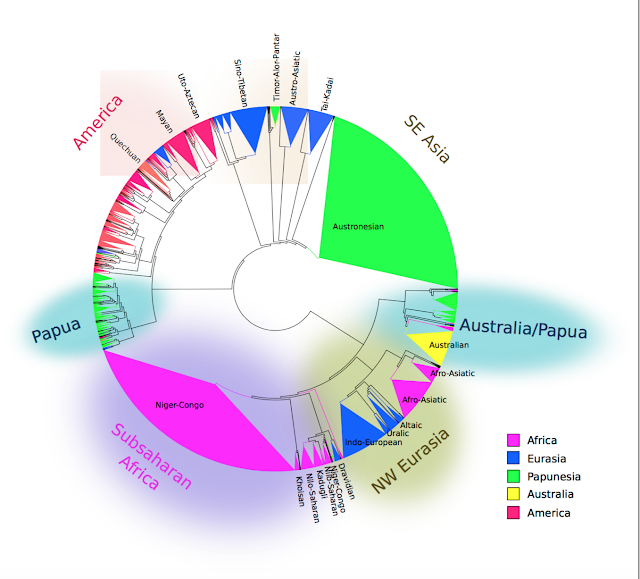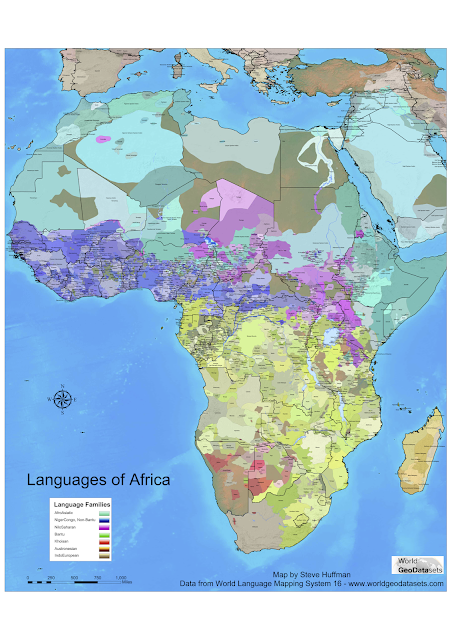Progress
Sometimes it is just really nice to remember that there is progress in the description of (some) languages, even though it might take decades.
From Lindblom, Gerhard. (1926) Notes on Kamba Grammar (Archives d’Études Orientales 10). Uppsala: Appelbergs Boktryckeri, page 34:
"It was thought, for a long time, that East-African dialects did not have any musical accent, any fixed melody bound to the word as such, as in Swedish, Lituanian, Chinese and other languages. The researches of Meinhof and others have proved the existence of a musical accent in Kishambala and Kinyamwezi. I cannot fully ascertain, whether such an accent exists in Kikamba, but it is certain that there are in the language several words absolutely identical as to the constituent sounds, which in pronunciation are strictly distinguished by the natives. They have often laughed, when I have said the word for 'rust' instead of that for 'guinea-fowl' (see ex. below). As far as I can hear, there is no difference of stress in the following pairs of words, so I suppose there must be some difference of pitch that I have not been able to catch. I give the examples for further research."
From Roberts-Kohno, Rosalind Ruth. (2000) Kikamba Phonology and Morphology. The Ohio State University doctoral dissertation, page 191:
"Kikamba is a Bantu language with four tones: Super-Low (SL), Low (L), High (H), and Super-High (SH)."
From Lindblom, Gerhard. (1926) Notes on Kamba Grammar (Archives d’Études Orientales 10). Uppsala: Appelbergs Boktryckeri, page 34:
"It was thought, for a long time, that East-African dialects did not have any musical accent, any fixed melody bound to the word as such, as in Swedish, Lituanian, Chinese and other languages. The researches of Meinhof and others have proved the existence of a musical accent in Kishambala and Kinyamwezi. I cannot fully ascertain, whether such an accent exists in Kikamba, but it is certain that there are in the language several words absolutely identical as to the constituent sounds, which in pronunciation are strictly distinguished by the natives. They have often laughed, when I have said the word for 'rust' instead of that for 'guinea-fowl' (see ex. below). As far as I can hear, there is no difference of stress in the following pairs of words, so I suppose there must be some difference of pitch that I have not been able to catch. I give the examples for further research."
From Roberts-Kohno, Rosalind Ruth. (2000) Kikamba Phonology and Morphology. The Ohio State University doctoral dissertation, page 191:
"Kikamba is a Bantu language with four tones: Super-Low (SL), Low (L), High (H), and Super-High (SH)."





Comments
Post a Comment